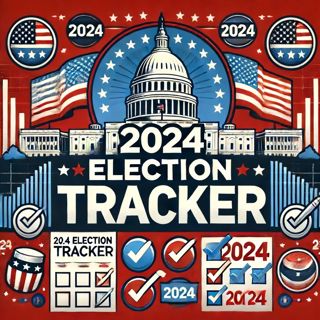
Shifting Tides in the 2024 Presidential Race: Biden Bows Out, Harris Rises, and Immigration Takes Center Stage
Jaksokuvaus
As the 2024 Presidential election approaches, the American political landscape is evolving with significant developments that are shaping the campaign narratives and voter sentiments. Recent developments reveal a shifting focus within the Democratic party and emphasize key issues that are likely to influence voter decisions at the polls.In a notable pivot in the political scene, President Joe Biden has decided not to seek reelection, stepping down from the race. This development was shared by President Biden during an address to the nation from the Oval Office, broadcasted on C-SPAN.org. His departure from the race opens the field within the Democratic party and sets the stage for new leadership to emerge.Amidst this shift, Kamala Harris has risen as the Democratic party's presumptive presidential candidate. Her candidacy is generating enthusiasm, as evidenced by a surge in campaign merchandise sales. A union-operated print shop in Tucson, Arizona, finds itself at the heart of this excitement, working overtime to meet the growing demand for Kamala Harris-themed merchandise. This surge is a testament to her rising popularity and the mobilization of her supporters as reported by FOX 10 Phoenix.Meanwhile, as candidates gear up for what promises to be a heated election, immigration has surfaced as a pivotal issue among the American electorate. ABC News' Mireya Villarreal, through an in-depth analysis on YouTube, highlighted that immigration remains a top concern for voters. The attention to this issue reflects broader national debates over policy and the future of the United States in managing borders and fostering inclusive policies.These developments collectively point to a dynamic electoral cycle. With President Biden stepping aside, Kamala Harris's emerging leadership, and critical issues like immigration engaging the public, the trajectory of the 2024 Presidential election is poised to be not only competitive but also deeply influential in shaping the next phase of American governance. As politicians, voters, and advocacy groups engage in these discussions, the outcomes of these debates will likely resonate beyond the election, impacting U.S. policy and international relations for years to come.
